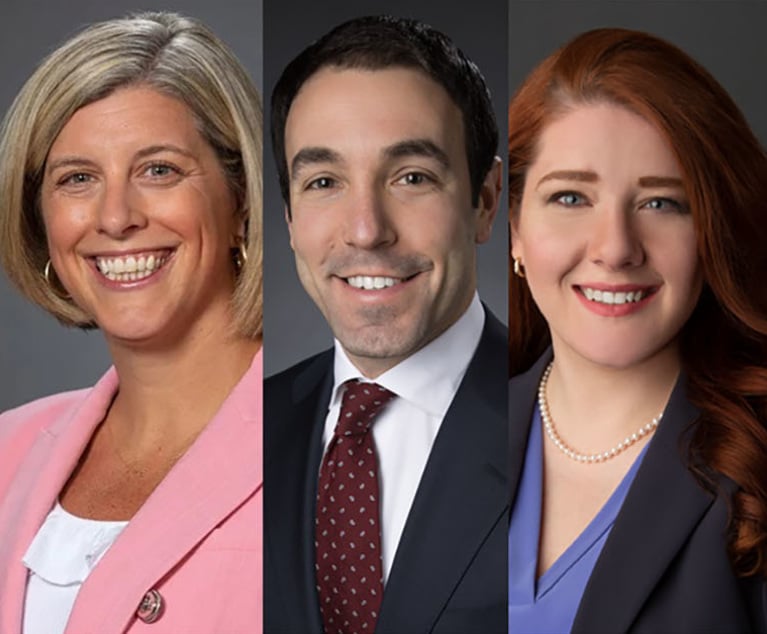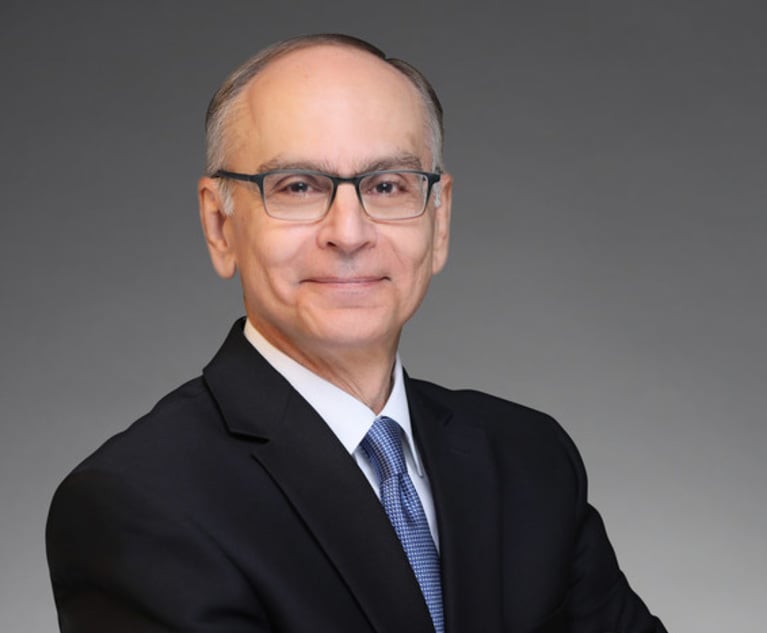In a case of first impression within the U.S. Court of Appeals for the Eighth Circuit, the court in United States ex rel. Cairns v. D.S. Medical, No. 20-2445, — F.4th —-, 2022 WL 2930946 (8th Cir. July 26, 2022), split with the Third Circuit by holding that to establish that a claim for payment violates the False Claims Act (FCA) via the Anti-Kickback Statute (AKS) a plaintiff must show but-for causation. That is, a plaintiff must show that the claim would not have been made were it not for allegedly illegal kickbacks. Cairns represents a sharp departure from the approach applied by other courts and will make kickback-based FCA cases far more difficult to establish in the Eighth Circuit.
The FCA imposes civil liability on anyone who knowingly presents, or conspires to present, a “false or fraudulent” claim for payment by the federal government. 31 U.S.C. §3729(a)(1)(A), (C). Under the AKS it is a felony to “knowingly and willfully solicit[] or receive[]” kickbacks for referrals, recommendations, or purchases of any “item[s] or service[s]” paid “in whole or in part” by Medicare or Medicaid. 42 U.S.C. §1320a-7b(b)(1)(A), (f).
The AKS was amended in 2010 to add a provision stating that “a claim that includes items or services resulting from a violation of” the AKS is a “false or fraudulent” claim for FCA purposes. 42 U.S.C. §1320a-7b(g). But even prior to the 2010 amendment, courts regularly held that kickback-tainted claims violated the FCA, and the prevailing view among federal courts was therefore that the 2010 amendments merely clarified existing law. See, e.g., United States ex rel. Westmoreland v. Amgen, 812 F. Supp. 2d 39, 52 (D. Mass. 2011).
The defendant in Cairns, Dr. Sonjay Fonn, is a Missouri neurosurgeon who treats spinal disorders using spinal implants. 2022 WL 2930946, at *1. Dr. Fonn sourced those implants from medical distributor DS Medical, which is wholly owned by Dr. Fonn’s fiancée. Id. Although Dr. Fonn was DS Medical’s only major customer, the company earned $1.3 million in commissions in a single year from just one spinal implant manufacturer. Id. Through this arrangement Dr. Fonn was given the opportunity to purchase stock in the manufacturer, which he did. Id. Afterward, Dr. Fonn continued to order more implants from the same manufacturer. Id.
Other physicians sued Dr. Fonn as qui tam relators under the FCA, alleging that Dr. Fonn had submitted false or fraudulent claims to Medicare and Medicaid after violating the AKS. Id. The government intervened, and the case went to trial, with the jury being instructed that to establish causation “it is enough for the United States to show that the claim failed to disclose the [a]nti-[k]ickback [s]tatute violation.” Id. at *1, 4 (alteration in original). The jury found Dr. Fonn liable on two of three claims, awarding treble damages and penalties totaling nearly $5.5 million. Id. at *1.
On appeal, Dr. Fonn argued that the district court’s causation instruction was erroneous and should have required proof of but-for causation. Id. at *2. The case boiled down, in the Eighth Circuit’s analysis, to the meaning of “two simple words: ‘resulting from.’” Id. at *4. The panel held that although AKS does not define “resulting from,” its meaning was “unambiguous” and thus the analysis “both begins and ends with the text.” Id. Citing dictionary definitions of “result” and recent Supreme Court precedent analyzing similar language in the Controlled Substances Act, the court held that “in common and ordinary usage, the participle phrase ‘resulting from’ … expresses ‘a but-for causal relationship.’” Id. It thus held that to establish a violation of the FCA through the AKS a plaintiff “must prove that a defendant would not have included particular ‘items or services’ but for the illegal kickbacks.” Id. at *6. The court similarly held that because “resulting from” is “unambiguously causal,” the 2010 amendments to the AKS could not have “codified” earlier cases holding that non-disclosure of an AKS violation was sufficient to make a claim false or fraudulent, even absent proof of but-for causation. Id. at *5. It rejected the government’s appeal to legislative history for the same reason. Id. at *5-6
The but-for causation standard adopted in Cairns sets the Eighth Circuit apart from both the Third Circuit—the only other appellate court to have addressed this issue[1]—and all district courts that have addressed it as well. In United States ex rel. Greenfield v. Medco Health Solutions, the Third Circuit rejected a but-for causation requirement, citing both legislative intent for the FCA and the AKS to sweep broadly and the potential for the “incongruous result” of a defendant being criminally convicted of an anti-kickback violation yet avoiding civil FCA liability “absent additional proof that each medical decision was in fact corrupted by the kickbacks.” 880 F.3d 89, 96 (3d Cir. 2018). At the same time, the Greenfield court rejected the much looser standard advanced by the plaintiff, under which an anti-kickback violation would taint all subsequent reimbursement claims. Id. at 100. Instead, it held that the plaintiff had sufficiently “link[ed]” the anti-kickback violation to the allegedly false claims by showing merely that “a particular patient [was] exposed to an illegal recommendation or referral and a provider submit[ted] a claim for reimbursement pertaining to that patient.” Id. (emphasis added). This middle-ground approach had been applied repeatedly before Cairns. [2] The Cairns court acknowledged that its holding split with Greenfield, but noted that Greenfield had “adopted an approach that we have already rejected” by relying on legislative history. Cairns, 2022 WL 2930946 at * 6.
Cairns establishes a standard that will be significantly more difficult for plaintiffs to meet, and that will strongly favor FCA defendants in the Eighth Circuit in the immediate future. In essence, FCA plaintiffs in the Eighth Circuit must now produce evidence—for each allegedly false claim—that, absent a kickback, the billing party would not have provided the services or procured the goods that form the basis of a claim to the government for reimbursement. In light of complexity of the types of decisions that lead to the presentment of claims for payment to the government (e.g., the decision to provide medical services, to prescribe a drug, implant a device, or procure a fighter jet), it will prove a daunting task for plaintiffs to establish that a kickback was the sole (or even the primary) reason such decisions were made.
Cairns, therefore, has significant implications for the application of the FCA given the frequency with which FCA claims are premised on violations of the AKS. The relators’ bar and the Department of Justice will continue to advocate in favor of Greenfield’s middle ground approach or in favor of an even more lenient standard where all claims submitted following a kickback are deemed to be false. The Supreme Court has often refrained from resolving FCA circuit splits. But perhaps that is changing after the Court recently granted certiorari on the issue of the appropriate standard for government dismissals of qui tam actions[3] and has sought the Solicitor General’s input on petitions for certiorari seeking to resolve another split regarding the Rule 9(b) pleading standard in FCA cases.[4] Given that only the Eighth and Third Circuits have so far weighed in on the matter, we expect that the Supreme Court will not weigh in, at least until after additional Circuits tackle this question. For the time being, however, Cairns will provide defendants in the Eighth Circuit with a strong defense against kickback-based FCA claims.
Endnotes:
[1] The First Circuit has cited the Third Circuit’s Greenfield decision favorably without explicitly deciding whether to adopt its holding. See Guilfoile v. Shields, 913 F.3d 178, 190 (1st Cir. 2019).
[2] See, e.g., United States v. Teva Pharms. USA, No. 13-CV-3702 (CM), 2019 WL 1245656, at *23-24 (S.D.N.Y. Feb. 27, 2019) (rejected but-for standard and applying Greenfield’s “middle of the road” approach); United States ex rel. Bawduniak v. Biogen Idec, No. 12-CV-10601-IT, 2018 WL 1996829, at *6 (D. Mass. April 27, 2018) (same); Kuzma v. N. Arizona Healthcare, No. 18-CV-08041-PCT-DGC, 2022 WL 2159027, at *10-11 (D. Ariz. June 15, 2022) (same).
[3] United States ex rel. Polansky v. Exec. Health Res., 142 S. Ct. 2834 (Jun. 21, 2022).
[4] Johnson v. Bethany Hospice and Palliative Care, Docket No. 21-462 (Jan. 18, 2022) (inviting a brief from the Solicitor General).
Surya Saxena is a partner at the Minneapolis litigation boutique Greene Espel. A former federal prosecutor and former in-house counsel, Surya represents clients in False Claims Act and Anti-Kickback Statute matters, government enforcement actions, internal investigations, and white collar criminal defense. He has tried over a dozen cases before federal and state juries and argued multiple times before the Eighth Circuit Court of Appeals. Nicholas Scheiner is an attorney at the Minneapolis litigation boutique Greene Espel. Nick has developed a diverse litigation practice including representing clients in False Claims Act and Anti-Kickback Statute matters. He represents clients in an array of industries, including health care, consumer technology, education, mobile software, and manufacturing. Formerly a Special Agent with the Federal Bureau of Investigation in Manhattan, Nick also has deep experience in client-initiated internal investigations, civil enforcement actions by federal and state agencies, and criminal investigations.
NOT FOR REPRINT
© 2024 ALM Global, LLC, All Rights Reserved. Request academic re-use from www.copyright.com. All other uses, submit a request to [email protected]. For more information visit Asset & Logo Licensing.









